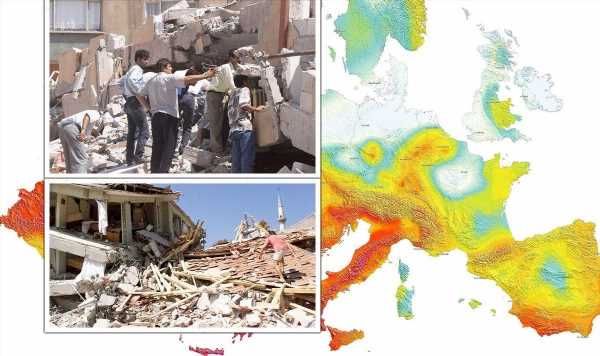Ursula von der Leyen says NATO is the ‘strongest alliance’
We use your sign-up to provide content in ways you’ve consented to and to improve our understanding of you. This may include adverts from us and 3rd parties based on our understanding. You can unsubscribe at any time. More info
The executive director of the European Union Agency for Cybersecurity (ENISA) Juhan Lepassaar is fuming over the issues within his agency. Mr Lepassaar vented his anger about the bureaucratic hindrances the ENISA has to grapple with during a roundtable on cybersecurity on Tuesday. In particular, the ENISA boss said that its incident reporting system, which is a mechanism for reporting and responding to cyberthreats, “does not work”.
He called for a revamp to the system, called the EU Directive on Security of Network and Information Systems (NIS), to allow for more “resilience”.
Mr Lepassaar said: “We need something which is agile, that works and where information can be shared in a secure manner.
“More resilience in critical sectors is definitely something we need to look at.”
He added: “The problem is that we are dependent on the information that we get from the member states.”
Mr Lepassaar then noted that there is a lack of information sharing which hampers the agency’s ability to improve Europe’s cybersecurity.


He said that at present, the system is too “cumbersome” and “bureaucratic”, meaning EU countries often avoid using the incident reporting system altogether.
But Mr Lepassaar was not alone in his concerns, as other cybersecurity experts have also questioned the effectiveness of the mechanism.
EU lawmaker Bart Groothuis is in charge of revising the NIS.
The European Commission floated the idea of including mandatory reporting of potential threats and near misses.
But Mr Groothuis was not convinved.

He told EURACTIV: “If you have too much bogus data, the significance of the output is too low.”
Last year, MEPs called for a common cyber defence policy and more EU cooperation on cyber capabilities.
They demanded that the EU needs coordinated responses to cyberattacks, which should include NATO, to counter the threats from Russia, China, and North Korea.
Now, the threat of cyberattacks has soared amid the Ukraine war.
Lawmakers warned that Russian malware and ransomware attacks were likely to increase in Europe as a response to harsh sanctions.
DON’T MISS
Russia’s ‘only oil pipeline to EU’ in flames – 3 countries face crisis [REVEAL]
Forget Satan 2! US £157bn project can wipe out Putin’s missile [REPORT]
Bulgaria and Greece break EU ranks with new nuclear plan [INSIGHT]


And UK intelligence officers earlier this month that the Kremlin was increasingly searching for cyber targets after its army reportedly started to struggle in Ukraine.
Additional reports also revealed that Russian hackers recently tried to access NATO networks and the militaries of a few eastern European countries.
Theresa Payton, cybersecurity expert and former White House chief information officer, warned that things are “heating up” in terms of cyberattacks.
She added: “We should prepare for the worst and operate at our best.”
The EU has taken some steps to boost its defences, with the ENISA issuing guidelines to step up the security of public and private organisations.
The bloc also formed a cyber rapid-response team (CRRT) consisting of eight to 12 experts, from Lithuania, Croatia, Poland, Estonia, Romania, and the Netherlands to help protect Ukraine from cyberattacks.
Source: Read Full Article

